
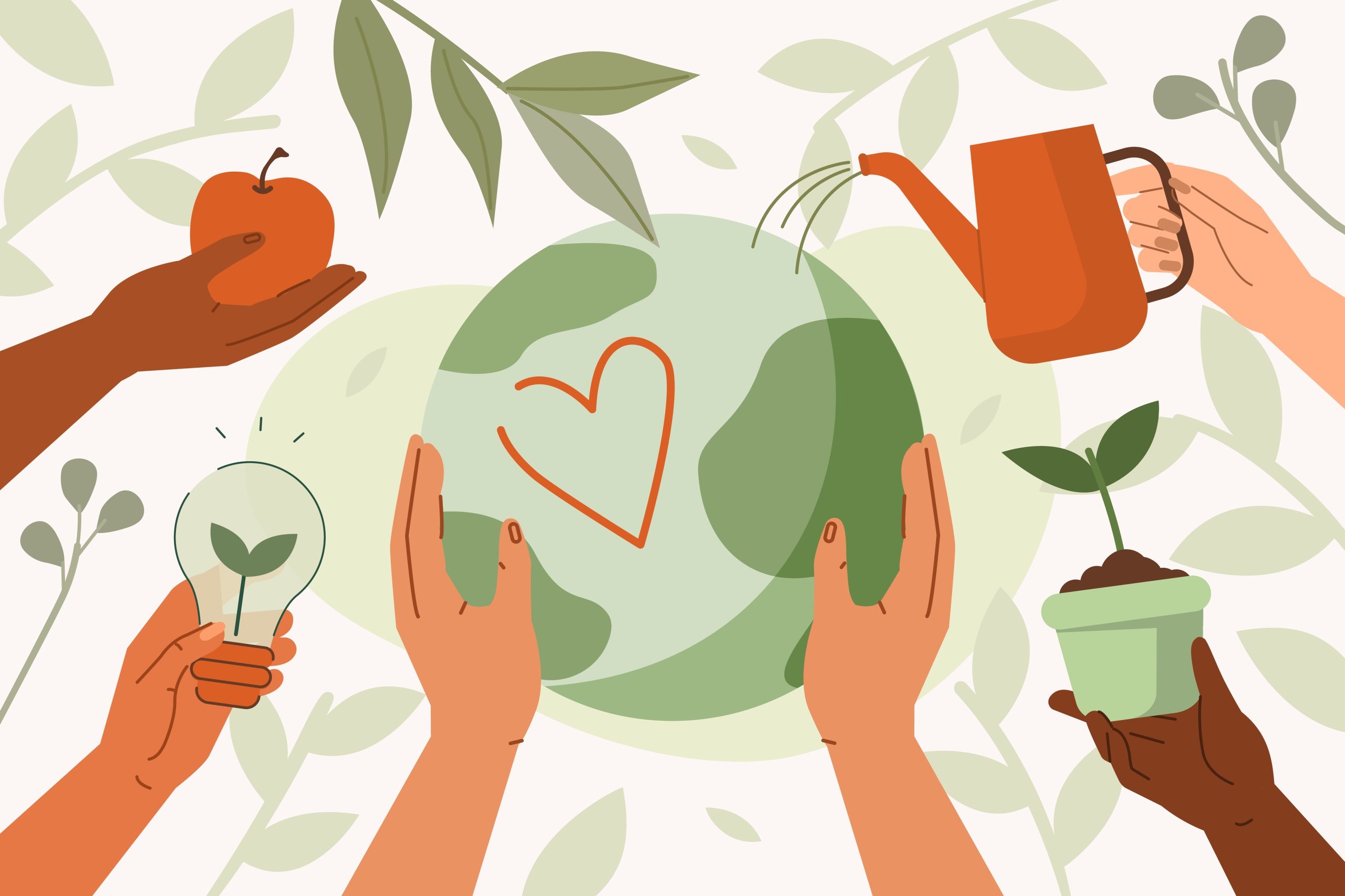
In the world of waste management, the future’s looking bright. We are starting to see a shift in the way we think about trash, and people are beginning to realize the value of waste. There is a lot of talk about turning trash into treasure and there are many ways we can do this. By 2025, the waste management industry is expected to change dramatically.
In this blog post, we’ll learn what effect waste has on our health and economy; and how cutting the waste we produce will help the environment. We’ll also look at what social impact waste has on people, and what sustainable ways to manage our waste, we should explore. Most importantly, we’re going to discuss how we can turn garbage into valuable resources.
Let’s dive right in!
How Big of an Issue Is Waste?

As the world becomes more populated, the amount of waste we produce is increasing at an alarming rate. In 2016, the world produced around 2 billion tons of waste. This number is expected to increase to 3 billion tons by 2025!
The ever-growing global population is inevitably driving the increase in the waste we produce. Our capacity to handle and properly dispose of waste, however, is struggling to catch up. The current system of waste management is not adequate to sustainably manage the amount of waste we produce. The majority of our waste (roughly 140 million tons each year) ends up in landfills, polluting the soil, air, and water.
Waste also has a deep social impact on people. It creates inequality, as around the world, the US included, people are struggling to get enough food daily. This creates a devastating paradox, where 1.3 billion tons of food a year are just thrown away, and yet, some people do not have enough of it on a daily basis.
The social issue with waste is further exacerbated by the fact that wealthier countries export most of their waste to developing countries, leaving those with less to deal with the immediate environmental and health issues garbage creates.
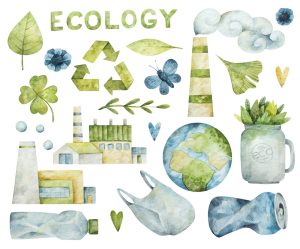
The environmental impact of waste is huge. It takes a lot of energy and resources to manage all this waste, and this harms the environment. Landfills are a major source of greenhouse gas emissions, and they also take up valuable land that could be used for other purposes.
Incinerating or burning waste is another way to get rid of it, but this also harms the environment. Burning waste releases harmful toxins into the air, which damages the ozone layer and disrupts the normal functioning of ecosystems, resulting in the depleting population of vital animal and plant species that play important roles in the balance of life.

As the amount of waste we produce increases, so does the risk to our health. Waste can contain harmful chemicals and toxins that can cause serious health problems.
The pollution caused by landfill and waste incineration has been linked to several health issues and serious illnesses like asthma, cardiovascular disease, cancer, and birth defects.
Furthermore, waste attracts vermin and insects that spread infections and diseases, adding to the list of issues trash and especially food waste creates for our health.

Waste and its mishandling are also creating huge economical problems. The economical loss in food being thrown away is around a trillion dollars. Waste is a huge burden on the global economy. With each food item thrown away, we lose copious amounts of labor, energy, and land resources. All the effort in the production, distribution and consumption phases is lost as well.
The accumulation of solid waste is a ticking environmental bomb that is harmful to the environment and our health, and it also costs the economy billions of dollars every year.
There are many other sustainable practices that we can follow to manage our waste more sustainably. These include reducing our consumption, reusing materials, and repairing items instead of throwing them away. By following these sustainable practices, we can make a big difference in the amount of waste we produce and the impact it has on the environment.
Here are a few more ideas that experts say will help us re-think, re-shape, and transform the ways we handle trash in the future.
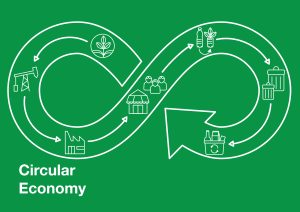
The first thing we should all do when trying to find sustainable and future-proofed waste management processes is to look at the current system. Today our disposal model is primarily linear. We produce, we use and throw away. This method, however, creates an ever-growing problem that needs immediate addressing.
We should change the way we look at waste, and try to incorporate circular models of production and consumption. Waste needs to be included in an economic system that brings a harmonious, never-ending cycle of production, use, and recycling.
Waste we produce at home and in the office is a valuable commodity that can help us build a circular consumption model, where nothing goes to waste and no garbage contaminates our ocean, air, and ultimately our food.
Investing in clean reprocessing technology, biodegradable packaging, and socially responsible food management practices on a local scale is a good way we can take hold of the impact we have on the environment and our health.
2. Investing in Waste-to-Energy Technologies
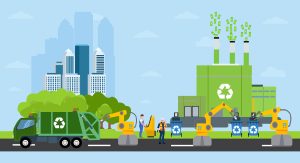
The global waste-to-energy market has grown tremendously over the past few years. It’s estimated that up to 300 million tons of garbage can be burned in energy plants and used for power generation.
The thermal subsection of the waste-to-energy sector is expected to grow to revenue of $48M by 2028, creating a huge economic potential for those who decide to develop there. Turning our waste into a viable energy resource that helps us fight the constant accumulation of garbage at our landfills and incineration is one way that seems to be working well so far.
The sector nevertheless has to see its transformation. A new business model that accounts for the negative effect of current waste-to-energy processes. Even if these incineration facilities cut significantly the greenhouse emissions produced by traditional fossil fuel energy generating plants (up to 95%), they still produce some amounts of harmful gasses.
One way we can solve the emissions issue is by looking at other types of technologies that ensure a more sustainable cycle of energy production. Biological technologies could prove to be the breakthrough we need.
Technologies like biodegradable feedstock, or using microorganisms to convert carbon-rich waste into biofuel via a gas fermentation technology are just two instances of how biotech can help us find more efficient and eco-friendly waste management solutions.
A real-life example of biotech turning waste into resources is that of Novozymes, a Danish biotech firm, and their product – Eversa. Eversa is an enzyme-based solution that converts used cooking oil or other lower-grade oils into biodiesel.
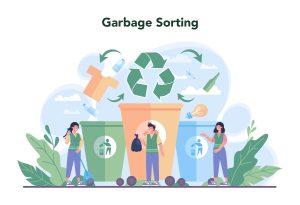
Recycling has been hyped up for years now. We all understand its importance and immense potential in cutting down waste going to landfills and oceans.
But while materials like paper and metals used in electronics are relatively easy to recycle, complex plastics are not. The more sophisticated the plastics we use get the harder it is to break them down and re-use them. Specialty plastics like carbon fiber for instance are notoriously hard to recycle, requiring a lot of additional resources and ramped-up costs.
Innovative technologies that sort through plastics and separate recycling materials quickly and efficiently are needed to get these often one-time-use plastics back into the production loop. Processes like robot sorting, x-ray, near-infra-red sorting, and laser-induced breakdown, might offer the answer to our growing plastic waste problem.
Companies that complement the sorting and recycling processes are also important contributors to solving the low-rates recycling issue. Manufacturers like – Clariant, a global company that specializes in plastics colorants, that are easy to detect by sorting machines, for example, help increase recycling rates.
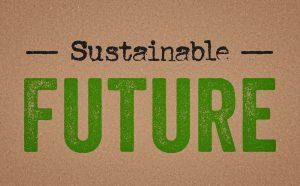
There is no doubt that waste management is a critical issue for our planet. The way we manage waste today will have a significant impact on the environment and human health in the future. If we want to turn trash into treasure, we need to start looking at waste management in a new way.
Sustainability should be our main focus when setting policies and finding practical ways of turning waste into a renewable resource for industries. These future-proofed waste management practices should give us the basis on which to step when building a greener future for ourselves.